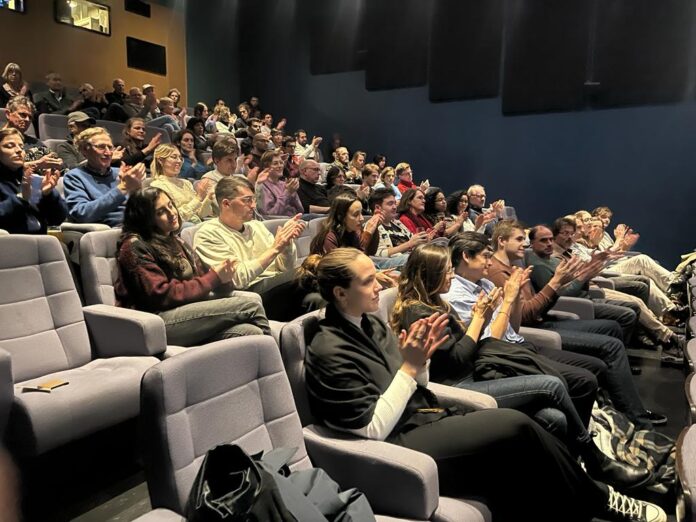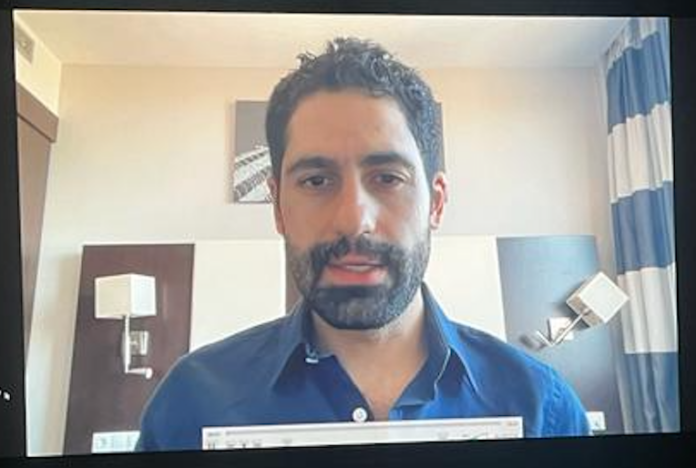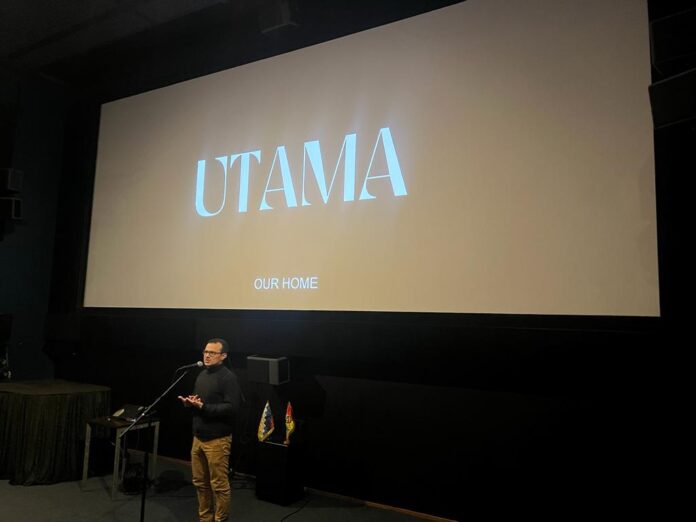The Latin American Film Festival at Filmhuis Lumen in Delft has once again graced the city with its cinematic brilliance, marking its second edition with an auspicious launch on Wednesday, October 25. This year, the festival opened its doors to an eager audience of over 100 people with the Bolivian masterpiece “Utama,” directed by the talented filmmaker Alejandro Loayza Grisi. The festival began on a high note with the presence of H.E. Roberto Calzadilla Sarmiento, the Ambassador of the Plurinational State of Bolivia to the Netherlands.
“Utama” serves as a powerful call to action, urging us to take better care of our planet and its precious resources.” In the words of Ambassador Calzadilla Sarmiento, “Utama is a call about mother earth, and taking care of her is everyone’s task.” The film explores the compelling story of an indigenous family in the highlands of Bolivia, grappling with the challenges of climate change, water scarcity, and the need for migration due to environmental changes.

This cinematic gem, produced in 2022, received critical acclaim by winning the Best Film Award at the Sundance Festival and securing the first place at the World Cinema Amsterdam festival. “Utama invites us to confront the harsh reality of climate change’s impact on freshwater resources, particularly in the highlands, where the reduction of glaciers poses a significant threat. The film masterfully draws attention to the role of industrial human activities, particularly in the global west, which have contributed to rising temperatures and the dire consequences faced by these indigenous communities.”
As the Ambassador noted, “The title of the Film Utama, which translates from the Aymara to signify ‘Our house,’ is a provocation to think that we have to be aware today of the urgency to save our planet earth, to save our nature because we are witnessing incurable consequences everywhere in our Pachamama, which is our common house.” “Pachamama” refers to Mother Earth in indigenous Andean cosmology and serves as a reminder of our shared responsibility to care for the environment. This film is a call to all of humanity, emphasizing the need to consider the well-being of future generations as we address the environmental challenges of our time.

Apart from the profound ecological message conveyed in “Utama,” the film’s photography is nothing short of breathtaking. The landscapes of the Uyuni salt lakes and the Atacama Desert are captured with mesmerizing beauty, offering viewers a glimpse of these awe-inspiring, otherworldly terrains. The silence that permeates the film, broken only by the sound of the wind and the passage of the llamas through the desert, creates an absorbing atmosphere. The film vividly portrays the challenges faced by the inhabitants of this arid land as they confront a life without water, a journey that becomes increasingly treacherous, the increased heat and the distances more remote. The human dignity, the honor, the codes of the end of life. Despite the harshness of their circumstances, “Utama” captures the subtlety and wisdom with which these people navigate life in harmony with nature.
The Delft Latin American Film Festival is a cultural and environmental endeavor that goes beyond the world of cinema. It serves as a platform for highlighting the pressing issues facing Latin American communities and the world at large. As Ambassador Calzadilla Sarmiento emphasizes, “Mother Earth is in our hands, and taking care of her is everyone’s task everywhere, and also here in the Netherlands.”
This year’s festival is divided into two parts, with the first segment taking place from October 25 to October 28. It features films from Bolivia “Utama”, Guatemala “Gol de Plata”, Uruguay “La Sociedad de la Nieve”, the Dominican Republic “Carajita”, and Cuba “Fresa y Chocolate”. The second part of the festival will be hosted in spring, featuring contributions from other countries in Latin America. The festival’s expansion into two segments underscores its commitment to showcasing the diverse cinematic talents and the compelling stories of the region.

In the organization of this event, the Embassy of Costa Rica has played a vital coordinating role on behalf of the Group of Embassies of Latin American and Caribbean countries and the people in Delft responsible for the festival’s organization. Manuel Morales, Costa Rica’s Consul General, spoke to the collaborative efforts that went into bringing this festival to life, stating, “Since the beginning of this year, the Embassy of Costa Rica held numerous meetings to identify a quality offer, in coordination with those responsible for Filmhuis Delft and with the other Embassies of our region.” The first edition in 2019 was a joint effort of several Latin American countries that, at that time Costa Rica initiated and promoted, especially Anna María Oduber, who was the Charge d’affaires a.i. with all the support of the Delft Film Huis, who opened their doors so that the Latin American countries could organize this event of cultural scope, and it was very successful.
The Latin American Film Festival in Delft is more than just a celebration of cinema; it’s a celebration of culture, nature, and the shared responsibility we all have toward the well-being of our planet. As we immerse ourselves in the captivating stories and stunning visuals of these films, we are reminded of the importance of preserving our environment and the urgent need for global action. The festival not only enriches the cultural landscape of Delft but also prompts us to think about the future and our collective role in nurturing our planet, our “common house.”



